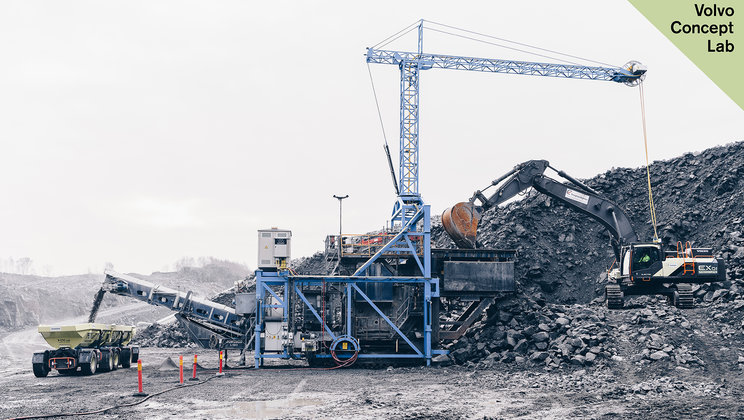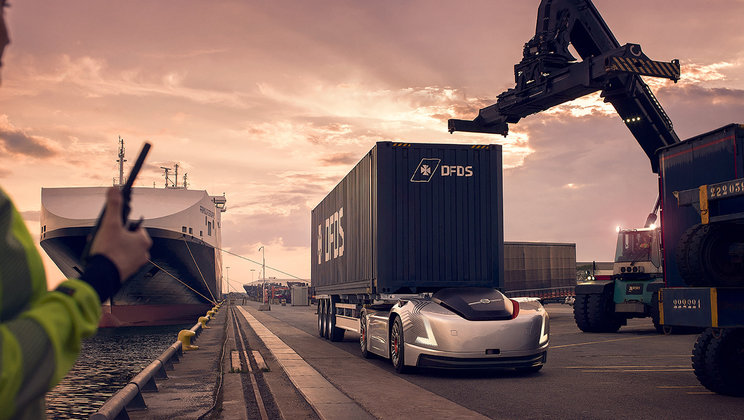The Swedish automotive major says that it sees opportunities for autonomy in vehicles for transporting materials and goods in the mining, ports and logistics sectors.
“We have experienced a significant increase in inquiries from customers,” said president and chief executive Martin Lundstedt. “It is a logical next step for us to gather expertise and resources in a new business area with profit and loss responsibility to take autonomous transport solutions to the next level.”
The company notes that transport in these sectors tends to move large volumes of material along pre-defined and repetitive routes, and that is therefore well suited to autonomous solutions which can improve flexibility, delivery precision and productivity. The new business area will therefore be part of Volvo’s trucks segment.

Volvo already has three ongoing projects investigating autonomy in large commercial vehicles. The Electric Site project, a collaboration between Volvo Construction Equipment and its client Skanska, aims to electrify each transport stage in a quarry, from excavation to primary crushing, and transports to secondary crushing.
Volvo and Skanska go green with ‘emission-free’ quarry
Volvo’s autonomous Vera hauler parks up at port
Based at the Vikan Kross quarry near Gothenburg, the project is using eight autonomous battery-electric load carriers to transport material from the primary mobile crusher to the secondary static crusher. Fitted with a machine vision system, these “HX2 prototypes” follow an adjustable, programmed GPS path and can detect humans and obstacles in its path. These have demonstrated an improvement in energy use per ton of material handled, suggesting that autonomy can deliver efficiency improvements in this application.
Volvo Trucks ’ first autonomous solution in real operation has been a project at the Brønnøy Kalk mine in a remote coastal region of western Norway, where autonomous trucks are transporting limestone along a five-kilometre stretch of road through tunnels between the mine itself and the crusher, located at a nearby port where the stone is loaded onto large ships.
The mine has purchased the transport between these two points as a service from Volvo, rather than buying the trucks.
“We have a hundred-year perspective in focus here. Today, we are running a two-shift manual operation in production and maintenance, whereas the ships exporting the limestone are being loaded twenty-four seven,” said Brønnøy Kalk managing director Raymond Langfjord. “Having the opportunity autonomously to transport the limestone round the clock could greatly improve our operations.”

A third project sees an electric, connected and autonomous vehicle known as Vera forming part of an integrated solution to transport goods from a logistics centre to a port terminal in Gothenburg.
A collaboration between Volvo trucks and ferry and logistics company DFDS, the project uses the flat container-carrying Vera vehicles for a short route, with several vehicles coordinated and monitored by a control tower.
The project began in June, and developments are underway in terms of technology, operations management and infrastructure adaptations to ensure that all safety precautions are in place before active operations begin.
“This collaboration will help us develop an efficient, flexible and sustainable long-term solution for receiving autonomous vehicles arriving at our gates, benefitting our customers, the environment and our business” says Torben Carlsen, CEO of DFDS.
Volvo is currently seeking a head of autonomous solutions, ahead of the formal launch of the new business area in January 2020.




Poll: Should the UK’s railways be renationalised?
I'm reminded of the old adage about stupidity is doing the same thing time and time again, expecting different results. The current model simply...